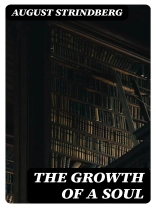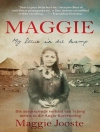In ‘The Growth of a Soul, ‘ August Strindberg delves into the intricate tapestry of human experience, presenting a profound exploration of spiritual and personal evolution. Written in a semi-autobiographical style, the narrative intertwines psychoanalytical insights with a vivid portrayal of late 19th-century European society. Strindberg’s prose embodies a raw intensity, manifesting his inner conflicts and existential musings through rich symbolism and evocative imagery, positioning the work within the literary context of modernist exploration and realism that challenged conventional narratives of his time. August Strindberg, a pioneering figure in both drama and literature, was deeply influenced by his tumultuous personal life, including his struggles with mental health, complex relationships, and societal alienation. His experiences in various artistic circles and his travels throughout Europe provided a fertile ground for the philosophical inquiries presented in this work. Strindberg’s challenges with acceptance and identity are mirrored in the protagonist’s journey, offering a glimpse into the author’s own psyche and the broader human condition. I highly recommend ‘The Growth of a Soul’ to readers who seek a profound reflection on the journey of self-discovery and the complexities of the human spirit. Strindberg’s masterful storytelling and his exploration of the intertwining of personal psyche with societal influence make this book a timeless piece that resonates with those interested in existential literature and psychological drama.
Yazar hakkında
August Strindberg (1849–1912) was a Swedish playwright, novelist, poet, essayist, and painter, renowned for his prolific work and profound impact on modern theater. Strindberg’s literary career spanned various genres and styles, but he is best known for his plays that challenged the traditional boundaries of drama during the late 19th and early 20th centuries. His work is characterized by psychological depth, often exploring the complexities of the human psyche and interpersonal relationships, which was revolutionary at the time. ‘The Growth of a Soul’ is one of his autobiographical works that delve into the evolution of his inner life and personal struggles, revealing the author’s introspective nature. Strindberg’s approach often incorporated naturalism and expressionism, aiming to depict reality as accurately as possible, while also experimenting with symbolism to capture the emotional experiences of his characters. His profound influence on drama and literature can be seen in the works of subsequent playwrights and authors who adopted his techniques and confronted similar existential themes. Strindberg’s legacy prevails as a foundational figure in the transition towards modernism in the literary world.












